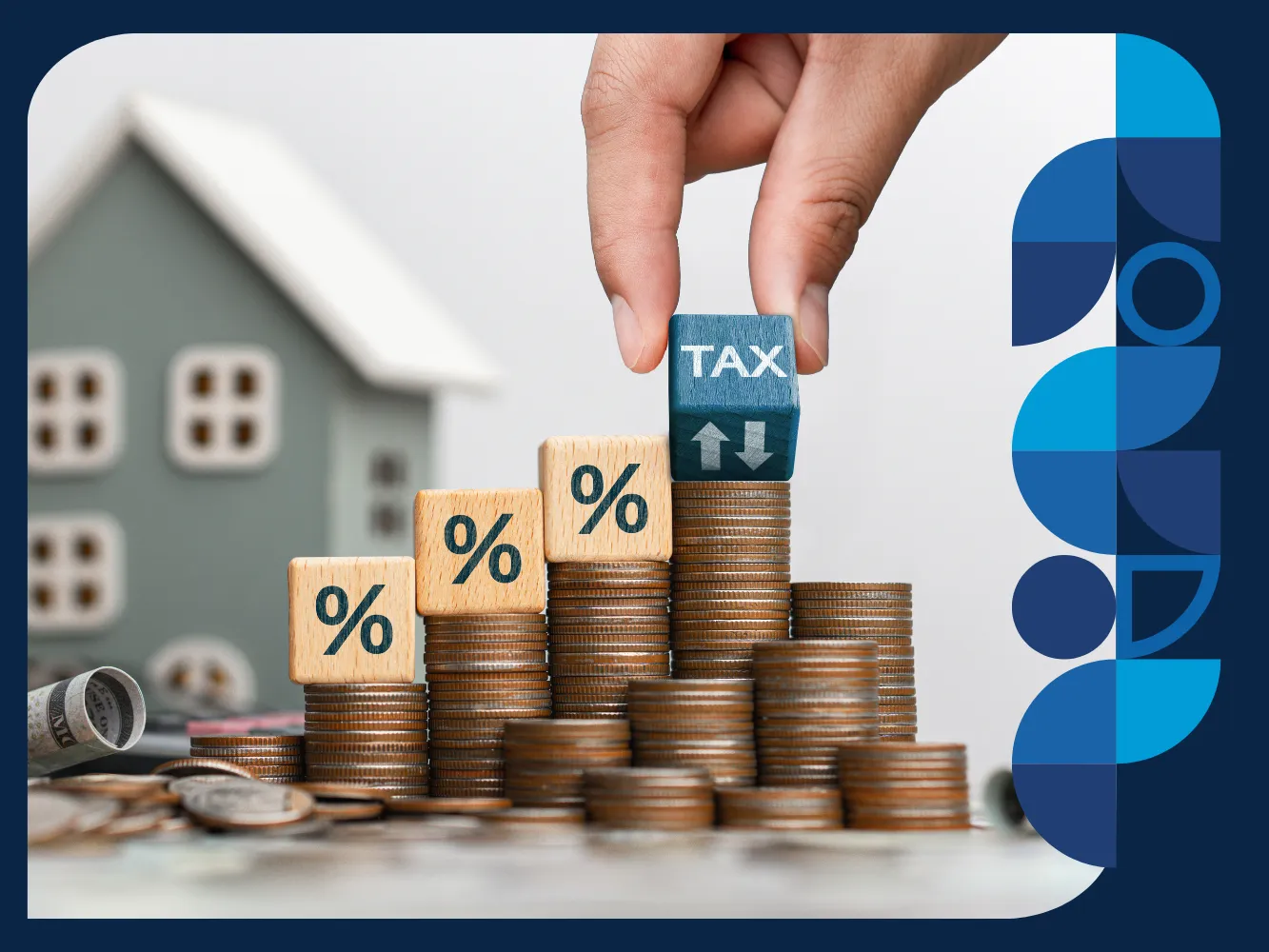Disclaimer: The information provided in this content is for informational purposes only and should not be considered as tax advice. We are not tax advisors, and you should consult a qualified tax professional to address your specific situation and ensure compliance with applicable laws and regulations.
General Questions on Tax Deductions
What is tax deductible for rental property?
Expenses related to managing, maintaining, and operating a rental property are tax deductible. These include mortgage interest, property taxes, insurance premiums, repairs, utilities, and depreciation. Proper documentation is essential to claim these deductions.
Categories of Deductible Expenses
Are property taxes deductible on rental property?
Yes, property taxes levied by state and local governments are fully deductible as an expense for rental properties. However, ensure you deduct taxes explicitly paid for the property and not other personal taxes.
Is HELOC interest tax deductible on rental property?
Interest on a Home Equity Line of Credit (HELOC) used to acquire, improve, or repair a rental property is deductible. The rental property must secure the HELOC, and the funds must be used for rental purposes.
Is homeowners insurance tax deductible on rental property?
Yes, premiums for homeowners insurance on rental properties are deductible. This includes coverage for fire, theft, and liability insurance specific to the rental property.
Is lawn care tax deductible for rental property?
Lawn care and landscaping expenses are generally tax-deductible for rental properties, as they are considered necessary for maintaining the property’s condition and appeal. This includes services like regular mowing, pruning, and general upkeep.
However, to claim these deductions, it’s crucial to maintain detailed records of all expenses, including receipts and invoices. Additionally, if you pay an independent contractor $600 or more for services such as lawn care, you’re required to file Form 1099-NEC to report these payments.
Ensuring proper documentation and adherence to IRS reporting requirements is essential to substantiate your deductions and remain compliant with tax laws.
If you use a professional property management company, these reporting tasks are typically taken care of by the manager.
You can find out more about tax deductibles for rental property here.
Can I deduct remodeling expenses for rental property?
Remodeling expenses that add value, prolong the property’s life, or adapt to new uses are considered improvements and must be depreciated over time. However, repairs to maintain the property’s current condition are immediately deductible.
Can you deduct your labor on rental property?
No, the IRS does not allow landlords to deduct the value of their labor. Only expenses for materials and paid labor (contractors or employees) are deductible.
Are refinance closing costs tax deductible on rental property?
Refinance closing costs are partially deductible. Interest and points can be deducted over the life of the loan, but fees like appraisals or credit checks are not deductible.
Is home equity loan interest tax deductible for rental property?
Yes, the interest is deductible if the loan is used specifically for rental property expenses, such as purchasing, improving, or maintaining the property.
What closing costs are tax deductible for rental property?
Deductible closing costs include mortgage interest, points, and property taxes paid at closing. Other fees, such as title insurance or appraisal costs, are not immediately deductible but may be added to the property’s cost basis.
Are closing costs tax deductible on rental property?
Not all closing costs are deductible. While some, like mortgage interest and points, can be deducted over time, others must be capitalized and added to the property’s basis for depreciation purposes.
Are HOA dues deductible for rental property?
Yes, HOA fees are deductible if the property is used as a rental. These fees qualify as an ordinary and necessary expense for maintaining the property.
Are utilities tax deductible on rental property?
Utilities provided to residents, such as electricity, water, and gas, are deductible. If residents reimburse you for these costs, you must report the reimbursement as rental income.
Depreciation
How do you calculate depreciation on rental property?
Depreciation is calculated by dividing the property’s depreciable basis (purchase price minus the land value) by the IRS-determined recovery period for residential rental properties, which is 27.5 years. Use the straight-line method for consistent annual deductions.
Formula:
Depreciation per year = (Property Cost – Land Value) ÷ 27.5
Is depreciation different for short-term rental property?
Yes, short-term rental properties may be subject to different rules depending on how they are used. If the property is rented for fewer than 15 days annually, it is treated as personal property and not depreciated. If rented longer, normal depreciation rules apply as long as it meets rental activity requirements.
How does depreciating a rental property work?
Depreciation allows landlords to deduct the cost of the property (excluding land) over its useful life as an expense against rental income. It is an annual, non-cash deduction that reduces taxable income. The process begins the year the property is placed in service.
How long can you depreciate a rental property?
Residential rental properties are depreciated over 27.5 years, and commercial rental properties are depreciated over 39 years. The depreciation period starts when the property is in service and stops when it is no longer used or sold.
What happens to depreciation when you sell a rental property?
When a rental property is sold, previously claimed depreciation is “recaptured” and taxed at 25%. This is known as depreciation recapture. It’s important to account for this tax liability when planning a property sale.
Depreciation recapture can be deferred on sale by utilizing a 1031 exchange and purchasing suitable replacement property.
How are appliances depreciated in rental properties?
Appliances like refrigerators, stoves, and washing machines are depreciated over 5 years using the Modified Accelerated Cost Recovery System (MACRS), which allows for faster depreciation than the property itself.
For appliances costing below $2,500, landlords can use the safe harbor rule to expense the cost in the year of purchase rather than depreciating over multiple years.
1031 Exchange
What is a 1031 Exchange?
A 1031 Exchange, named after Section 1031 of the Internal Revenue Code, is a tax-deferral strategy that allows real estate investors to sell an investment or business-use property and reinvest the proceeds into a like-kind property. By doing so, investors can defer paying capital gains taxes, allowing them to reinvest more of their profits into new opportunities. It’s a popular tool for building wealth in real estate.
How Does a 1031 Exchange Work?
A 1031 Exchange works by replacing one investment property with another while deferring capital gains taxes. The process involves:
- Selling your current property.
- Using a Qualified Intermediary (QI) to hold the proceeds.
- Identifying replacement properties within 45 days.
- Closing on one or more replacement properties within 180 days. You defer taxes and reinvest all sale proceeds by adhering to these timelines and rules.
Is a 1031 Exchange Bad for a Seller?
A 1031 Exchange is generally advantageous for sellers looking to reinvest in real estate. However, it may not be ideal if:
- The seller prefers cash proceeds for non-real estate investments.
- The seller does not want to follow the strict timelines or rules required.
- The seller is ready to exit real estate altogether, as the tax benefits only apply when reinvesting in like-kind properties. For most investors aiming to grow their portfolio, a 1031 Exchange is a strategic advantage.
Can You Do a 1031 Exchange on a Primary Residence?
No, you cannot perform a 1031 Exchange on a primary residence, as the exchange only applies to properties held for investment or business purposes. However, if a primary residence has been converted into a rental property and used as such for a sufficient period, it may qualify for an exchange. Specific rules apply, and consulting a tax professional is recommended.
How to Do a 1031 Exchange
- Decide if it’s right for you: Evaluate your investment goals and tax implications.
- Sell your property: Work with a real estate agent and notify your Qualified Intermediary (QI) of the sale.
- Identify replacement properties: Within 45 days, identify up to three potential properties (or more under specific rules).
- Close on replacement property: Complete the purchase within 180 days of selling the original property.
- Work with professionals: A tax advisor, attorney, and experienced QI will help ensure compliance and avoid disqualification.
Can You Live in a 1031 Exchange Property?
You cannot immediately live in a property acquired through a 1031 Exchange, as it must be held for investment or business purposes. However, after a holding period (typically two years), you may be able to convert the property into a personal residence. This involves strict IRS guidelines, such as limiting personal use during the initial investment period.
Can You Do a 1031 Exchange on a Second Home?
It depends on how the second home is used:
- Vacation homes: To qualify, they must be primarily used as rental properties. Personal use should be limited (e.g., no more than 14 days per year or 10% of the days it’s rented).
- Investment properties: If the second home is rented out and treated as an investment, it can qualify for a 1031 Exchange. Strict documentation and adherence to IRS rules are required to ensure compliance.








